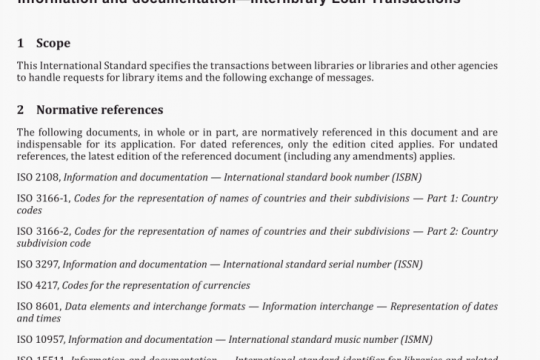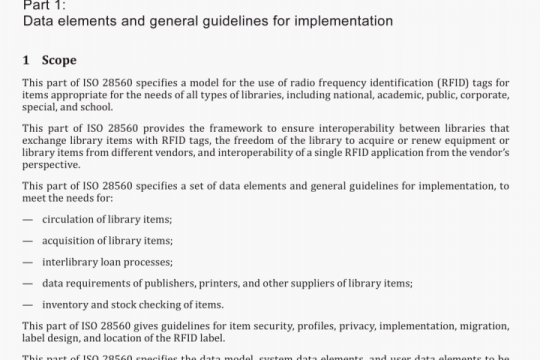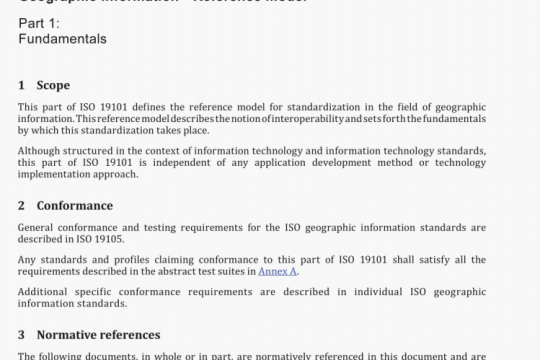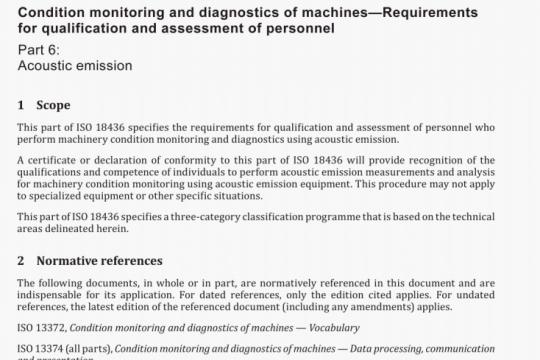ISO 4491-4:2013 pdf free
ISO 4491-4:2013 pdf free.Metallic powders一Determination of oxygen content by reduction methods
Alternatively, the metal of the capsule can constitute the metal bath needed for convenient extraction;in this case, the mass of the capsule is chosen to give the bath/test-portion mass ratio recommended for the particular analysis.
When the graphite crucible is used with a metal bath for several consecutive analyses, it is necessary to degas the bath prior to the beginning of each extraction operation.The bath/test-portion mass ratio is maintained larger than the recommended minimum value, if necessary, by the periodic introduction of fragments of metal followed by degassing of the bath.
The mass of the test portion shall be selected depending on the sensitivity of the apparatus used and the expected oxygen content. Frequently, a mass between 0,1 g and 1 g is chosen.
For the reason given in the introduction, it is not possible to specify the conditions of oxygen determination for each of the various metals, alloys, and carbides to be analysed, and for each of the types of apparatus available. It should be noted that, especially when the reduction is carried out in the solid state and with continuous heating, the reaction may be slow and the time for complete reduction of the oxides will depend on the oxygen content.
It is recommended that the optional conditions for testing a given type of material and for a given range of oxygen contents be determined by performing preliminary tests. It is common to make successive tests on the same sample, increasing the reducing action (i.e. by increasing the temperature and/or time of reaction) until the measured oxygen content reaches a maximum constant value. Other parameters (e.g. use of metal bath) may also be varied.
It is strongly advisable to use certified reference materials of the same type as the sample to ensure the correctness of the operating conditions adopted.ISO 4491-4 pdf download.




